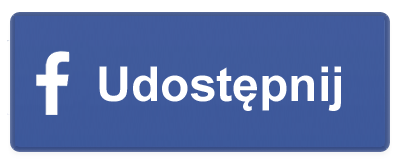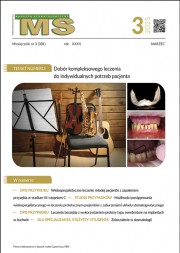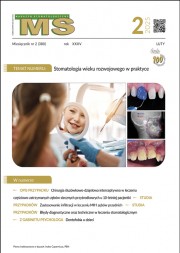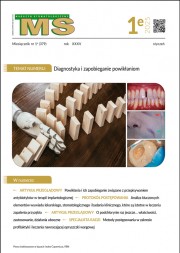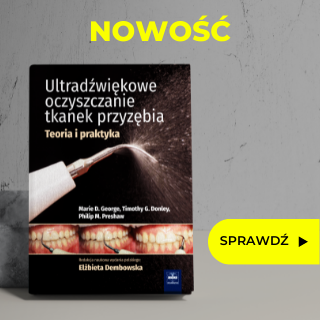Dostęp do tego artykułu jest płatny.
Zapraszamy do zakupu!
Po dokonaniu zakupu artykuł w postaci pliku PDF prześlemy bezpośrednio pod twój adres e-mail.
The dental sector is endangered by professional burnout
Paweł Rasmus, Katarzyna Robaczyńska, Magdalena Wrzesińska, Tomasz Sobów
Streszczenie
Celem badań było określenie wielkości zjawiska wypalenia zawodowego z uwzględnieniem zawodu, płci oraz stażupracy wśród pracowników branży dentystycznej. W celu określenia zjawiska wypalenia zawodowego użyto Kwestionariusza Wypalenia Zawodowego autorstwa Ch. Maslach. Stwierdzono, że lekarze dentyści oraz technicy dentystycznisą narażeni na wypalenie zawodowe.
Abstract
The aim of the study was to determine the extent of the phenomenon of professional burnout taking into account profession, sex and years of work among those working in dentistry. In order to describe the phenomenon of professional burnout, the Maslach Burnout Inventory was used to determine the level of the bornout. It was affirmed that dentists and dental technicians are exposed to professional burnout.
Hasła indeksowe: lekarz dentysta, technik dentystyczny, wypalenie zawodowe, choroby zawodowe
Key words: dentist, dental technician, professional burnout, occupational diseases
PIŚMIENNICTWO
- Kamrowska A.: Wypalenie zawodowe. Pol. Merkuriusz Lek., 2007, 23, 317-319.
- Tucholska S.: Christiny Maslach koncepcja wypalenia zawodowego: etapy rozwoju. Przegl. Psychol., 2001, 44, 3, 301-317.
- Anczewska M., Świtaj P., Roszczyńska J.: Wypalenie zawodowe. Postępy Psychiatr. Neurol., 2005, 2, 67-77.
- Sęk H.: Wypalenie zawodowe. Przyczyny i zapobieganie. Wyd. Nauk. PWN, Warszawa 2009.
- Willey J., Sons A.S.: Bournout and engagement in relations with job demands and resources among dental staff in Northen Ireland. Community Dent Oral Epidemiol. , 2001, 39, 87-95.
- Wrzesińska M., Łapińska M, Rasmus P.: Czy technicy dentystyczni są zagrożeni wypaleniem zawodowym?. Protet. Stomatol., 2015, 65, 2,162-169.
- Fengler J.: Pomaganie męczy. Wypalenie w pracy zawodowej. Gdańskie Wydawnictwo Psychologiczne, Sopot 2000.
- Johnston D. W., Wang-Sheng L.: Extra status extra stress – are promotions good for us? Industrial & Labor Relations Review, 2013, 1, 32-54.
- Greenglass E.: Różnice wynikające z ról płciowych, wsparcia społecznego i radzenia sobie ze stresem. (w:) Sęk H, Cieślak R. (red.) Wsparcie społeczne, stres i zdrowie. Wyd. Nauk. PWN, Warszawa 2012.
- Garbin C.A.S. i wsp.: Burnout’s syndrome in dentists. Journal of Depression and Anxiety, 2012, 1, 109.
- Szaton M., Harazin B.: Wypalenie zawodowe w wybranych zespołach ratownictwa medycznego w województwie śląskim. Ann. Acad. Med. Siles., 2013, 67, 1, 28-32.
- Kowalska J.: Wypalenie zawodowe wśród polskich fizjoterapeutów. Postępy Rehabil., 2011, 3, 43-52.
- Morawska-Joźwiak B., Olejniczak P., Rasmus P.: Wypalenie zawodowe personelu pielęgniarskiego pracującego w oddziałach szpitalnych. Pielęgniarstwo Polskie, 2016, 3, 317-323.
- Ahola K. i wsp.: Relationship between burnout and depressive symptoms: a study using the person-centred approach. Burnout Research, 2017, 1, 1, 29-37.
- Miądowicz K., Olszewska A.: Wypalenie zawodowe – aktualny problem wśród stomatologów. Mag. Stomatol. online, 2012, 22, 10, 125-130.
- Kulkarni S. i wsp.: Stress and professional burnout among newly graduated dentists. Journal of International Society of Preventive and Community Dentistry, 2016, 6, 6, 535-541.
- Garrouste-Orgeas M. i wsp.: The Iatroref study: medical errors are associated with symptoms of depression in ICU staff but not burnout or safety culture. Intensive Care Medicine, 2015, 41, 2, 273-284.
- Gordon N.A. i wsp.: Perceived stressors of oral hygiene students in the dental environment. African Journal of Health Professions Education, 2016, 8, 20-24.
- Yuval V. i wsp.: Professional burnout: It’s relevance and implications for the general dental community, Quintessence Int., 2014, 45, 1, 87-90.
- Żołnierczyk D.: Jak przeciwdziałać negatywnym skutkom stresu w pracy? Bezpieczeństwo Pracy, 2004, 6, 10-11.
- Aue W.: Ostrożnie z ogniem, czyli o wypaleniu zawodowym. Mag. Stomatol., 2011, 21, 9, 160-162.



